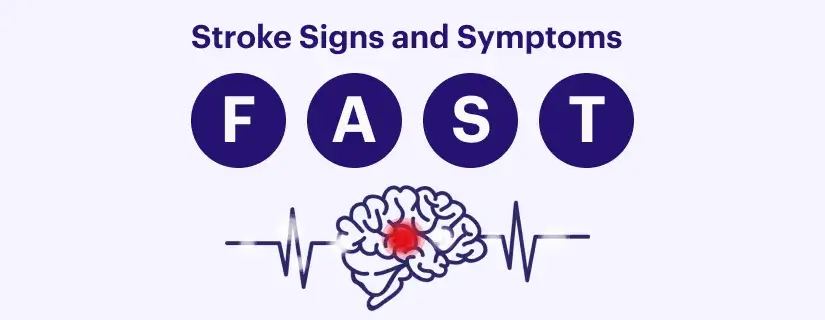-
Doctors
-
Specialities & Treatments
Centre of Excellence
Specialties
Treatments and Procedures
Hospitals & Directions HyderabadCARE Hospitals, Banjara Hills CARE Outpatient Centre, Banjara Hills CARE Hospitals, HITEC City CARE Hospitals, Nampally Gurunanak CARE Hospitals, Musheerabad CARE Hospitals Outpatient Centre, HITEC City CARE Hospitals, Malakpet
HyderabadCARE Hospitals, Banjara Hills CARE Outpatient Centre, Banjara Hills CARE Hospitals, HITEC City CARE Hospitals, Nampally Gurunanak CARE Hospitals, Musheerabad CARE Hospitals Outpatient Centre, HITEC City CARE Hospitals, Malakpet Raipur
Raipur
 Bhubaneswar
Bhubaneswar Visakhapatnam
Visakhapatnam
 Nagpur
Nagpur
 Indore
Indore
 Chh. Sambhajinagar
Chh. SambhajinagarClinics & Medical Centers
Book an AppointmentContact Us
Online Lab Reports
Book an Appointment
Consult Super-Specialist Doctors at CARE Hospitals
Multiple Sclerosis Diet: Foods to Avoid
Updated on 1 October 2019
While managing multiple sclerosis, foods you must avoid are as important as the foods that you eat. Besides promoting overall health, eating healthy can also help lengthen the time between multiple sclerosis (MS) relapses and boost the patient’s physical and mental health. For patients with multiple sclerosis, it is important to consult a nutritionist on a multiple sclerosis diet and exercise that work best with the treatment.
What is Multiple Sclerosis (MS)?
Multiple sclerosis (MS) is an autoimmune condition that progressively deteriorates the protective layers encasing your nerve fibers, known as myelin sheaths. With time, this ailment can lead to enduring nerve damage, disrupting communication between the brain and the body.
Symptoms of MS symptoms:
- Fatigue
- Sensations of tingling and numbness
- Issues with bladder and bowel control
- Movement challenges and muscle stiffness
- Visual impairments
- Difficulties in learning and memory.
Multiple Sclerosis Diet: Foods that one must avoid from the diet
Here, we have listed some of the food to avoid when dieting:
- Saturated Fats
Known to raise LDL or bad cholesterol, saturated fats come primarily from animal products and by-products such as full-fat dairy and red meat. Foods containing palm oil and coconut oil are some other sources. High cholesterol can convert into a condition called atherosclerosis that increases one’s risk of developing heart attack and stroke. Hypertension and cardiovascular disease can make the condition worse. Therefore, it becomes important to avoid unhealthy fats.
- Trans Fats
No matter how tempting commercially baked cookies, pies, crackers and other packaged products may look, these products rich in trans fats must be avoided. To identify such products rich in trans fats, look for keywords such as “shortening” or “partially hydrogenated oils”. Trans fats can raise inflammation inside blood vessels leading to cardiovascular problems. Seeking guidance from a neuro hospital in India shall help you know better about the consequences that make trans fats highly avoidable.
- Gluten
According to a study published in BMC Neurology, those suffering from MS have a higher incidence of celiac disease as compared to the general population. Gluten is a type of protein found in barley, wheat, and rye. It must be avoided by people with celiac disease. Doing so helps avoid intestinal damage! Those who do not have celiac disease feel an improvement in their overall health on eliminating gluten from their diet.
- Sodium
According to studies, sodium in high quantities can contribute to relapse or flare-up of symptoms. Besides, excess sodium can also elevate blood pressure and has been associated with decreased life expectancy in people with MS. It can also cause water retention, making you feel puffy. Unless you are otherwise healthy, it’s advisable to stick to sodium less than 2,300 mg on a daily basis.
Multiple sclerosis affects the nervous system and may lead to several health issues. If you are doubtful about your condition, consult a neurosurgeon in India who would help you identify the symptoms. Remember, healthful dietary choices can benefit people with multiple sclerosis and promote overall well-being.
CARE Hospitals is regarded as the best multiple sclerosis hospital in India, having a team of top multiple sclerosis specialists who provide the best treatment and care you needed.

ENQUIRY FORM
SELECT CATEGORIES
-
Neurosciences (16)
-
Neurology (37)
-
Neurosurgery (14)
-
Orthopaedics (48)
-
Oncology (33)
-
Obstetrics and gynecology (52)
-
Pulmonology (23)
-
Urology (20)
-
Nephrology (13)
-
Psychiatry (7)
-
Dietetics and Nutrition (111)
-
General Medicine (63)
-
Cardiac Sciences (32)
-
Vascular & Endovascular Surgery and Interventional Radiology (15)
-
Gastroenterology (46)
-
Endocrinology (23)
-
Plastic Surgery (10)
-
Critical Care Medicine (5)
-
COVID-19 (16)
-
Dermatology (16)
-
Emergency Care (1)
-
Ophthalmology (4)
-
Pediatrics (14)
-
Laparoscopic and Bariatric Surgery (8)
-
ENT (15)
-
Kidney Transplant (1)
-
Liver Transplantation and Hepatobiliary Surgery (5)
-
General Surgery (3)
-
Internal Medicine (5)
-
Medicine Information
This is how anxiety affects your Body
4 Myths about Epilepsy Busted
YOU MAY ALSO LIKE
RECENT BLOGS
-

Preterm Birth (Premature Birth): Symptoms, Causes, Treatment and Prevention
13 May 2025
Read More
-

Rotablation Angioplasty: Benefits, Treatments, And Recovery Time
9 May 2025
Read More
-

What Is The Difference Between IUI and IVF?
9 May 2025
Read More
-

Venous Malformations: Causes, Symptoms, and Treatment
30 April 2025
Read More
-

Varicose Vein Foam Sclerotherapy: Treatment, Benefits, and Procedure
30 April 2025
Read More
-

Radiofrequency (RF) Ablation Treatment for Varicose Veins: Know More
30 April 2025
Read More
-

Varicose Vein Sclerotherapy: Treatment, Benefits, and Procedure
30 April 2025
Read More
-

Varicose Vein Endovenous Laser Ablation: Procedure, Benefits, Risks
30 April 2025
Read More
Have a Question?
If you cannot find answers to your queries, please fill out the enquiry form or call the number below. We will contact you shortly.















